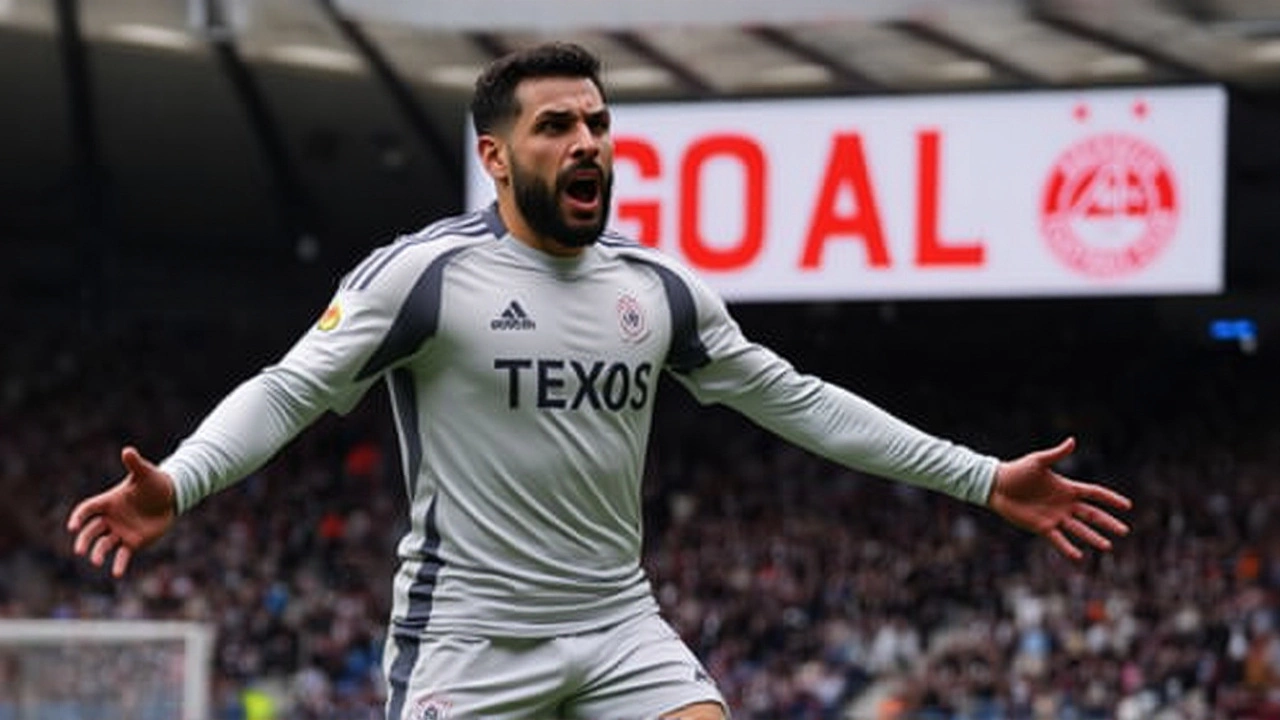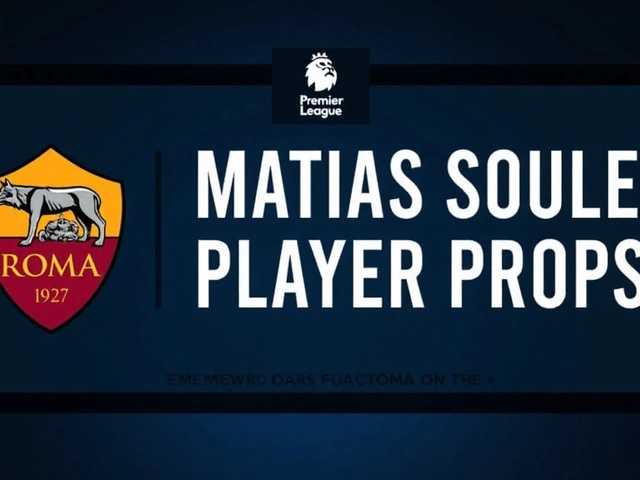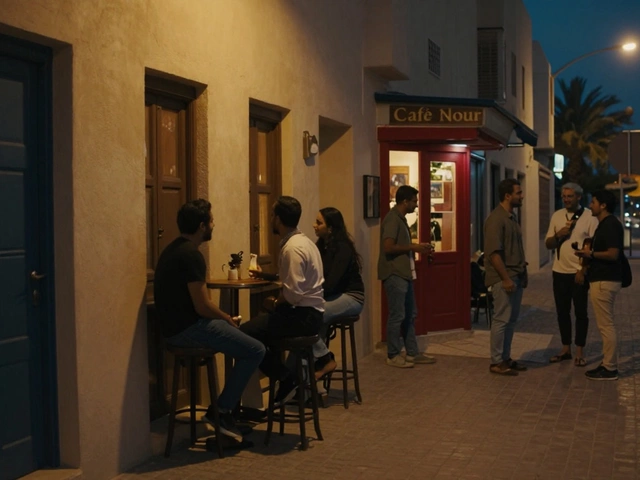When Oday Dabbagh curled a right-footed shot into the bottom corner in the 118th minute, the entire Glasgow stadium fell silent — then erupted. It wasn’t just a goal. It was history. On 19 April 2025, Aberdeen Football Club defeated Heart of Midlothian Football Club 2-1 after extra time in the Scottish Cup semi-final, advancing to their first final since 2017. And it all came down to one moment: a substitute, a broken defense, and a goal that carried more weight than most goals ever do.
Red Cards, Resilience, and a Tactical Collapse
Hearts didn’t lose because they were outplayed — they lost because they lost control. In the 65th minute, veteran defender Craig Halkett received his second yellow card for a reckless challenge. Then, just 13 minutes later, midfielder Cammy Devlin was sent off for violent conduct after a wild lunge that left the referee with no choice. Suddenly, Hearts were down to nine men. And still, their goalkeeper, 43-year-old Craig Gordon, pulled off 12 saves. Twelve. He was magnificent. But football isn’t just about goalkeeping. It’s about numbers. And when you’re down to nine, the odds shift like sand.Aberdeen, managed by Jimmy Thelin, didn’t panic. They pressed. They stretched. They waited. And when the moment came, they struck.
The Substitute Who Carried a Nation
Enter Oday Dabbagh. The 27-year-old Palestinian international, signed from Belgian side K.V. Kortrijk in 2023 on a £1.2 million-a-year deal, came on in the 72nd minute. He hadn’t scored since January. But in the 118th minute, with the clock bleeding into extra time’s final minutes, Lewis Ferguson — Aberdeen’s combative Scottish midfielder — slipped a perfect through ball. Dabbagh took one touch, turned, and fired. The ball kissed the post, bounced off the inside of the net, and the stadium exploded.He didn’t just celebrate. He pointed to the sky. Then he dropped to his knees, hands pressed to his chest. In his post-match interview, broadcast live on TRT World, he said: “This goal is for my people back home in Palestine. Every time I step on the pitch, I carry their hopes with me.” It wasn’t a political statement. It was a human one. And in that moment, football became something bigger.
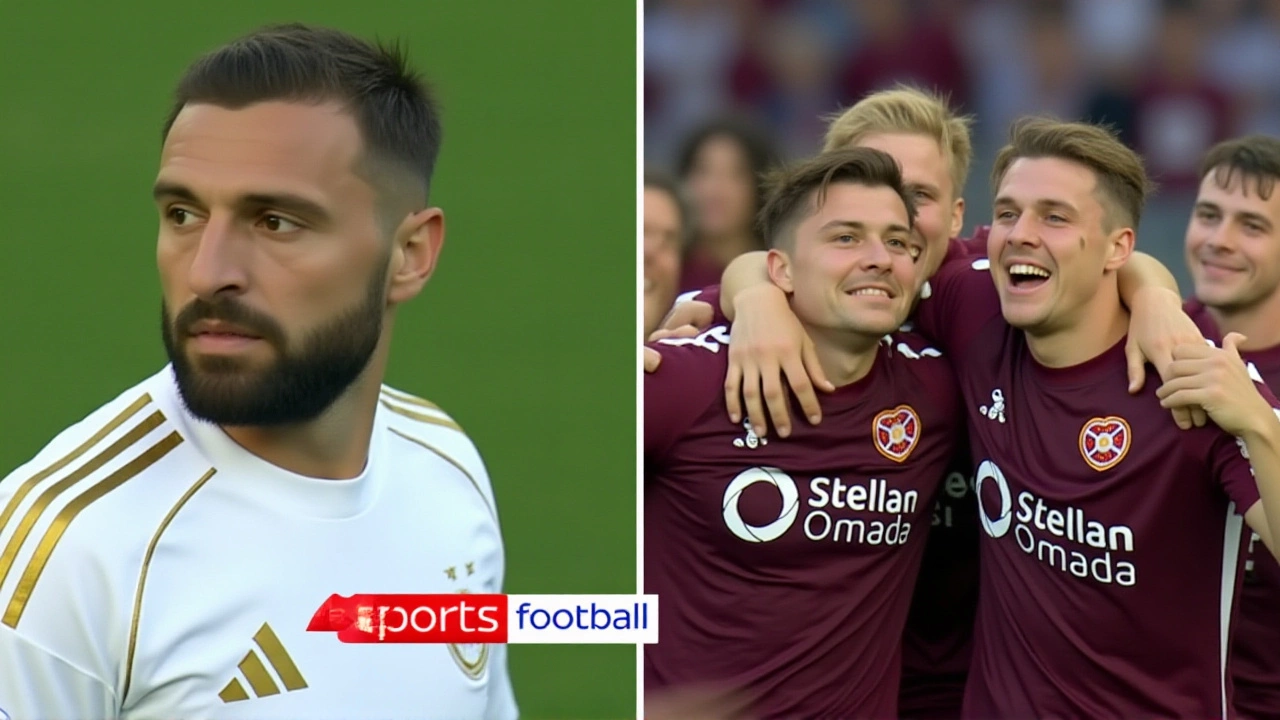
A Drought Ends, a Legacy Rekindled
For Aberdeen Football Club, this was more than a final. It was redemption. Their last Scottish Cup final appearance was in 2017 — a 2-1 loss to Celtic. Their last win? 1990. Thirty-five years. Three decades of near-misses, managerial changes, financial struggles. Now, they were back. This was their 17th final appearance — a record only Celtic (62) has surpassed. And with the trophy up for grabs, the weight of history was undeniable.The path to the final wasn’t easy. They beat Dunfermline 3-0 in January, then crushed Queen’s Park 4-1 in March. But Hearts? They were the toughest test. And Aberdeen passed it.
The Final: Own Goals, Penalties, and a First for Palestine
The final on 24 May 2025 at Hampden Park was chaos. Pure, beautiful chaos. Celtic took the lead through an own goal by Aberdeen’s Jack Dorrington in the 39th minute. Then, in the 83rd, Celtic’s Danish keeper Kasper Schmeichel — yes, the same one — accidentally deflected a cross into his own net. 1-1. Extra time. No goals. Penalties.Then came Dimitar Mitov, Aberdeen’s 31-year-old Bulgarian goalkeeper. He saved Aaron Mooy’s opener. Then, with the final kick, he stopped Victor Nilsson Lindelöf’s attempt. All four Aberdeen penalties were converted — including one by Dabbagh. He didn’t just score. He sealed it. And with that, he became the first Palestinian to win the Scottish Cup.
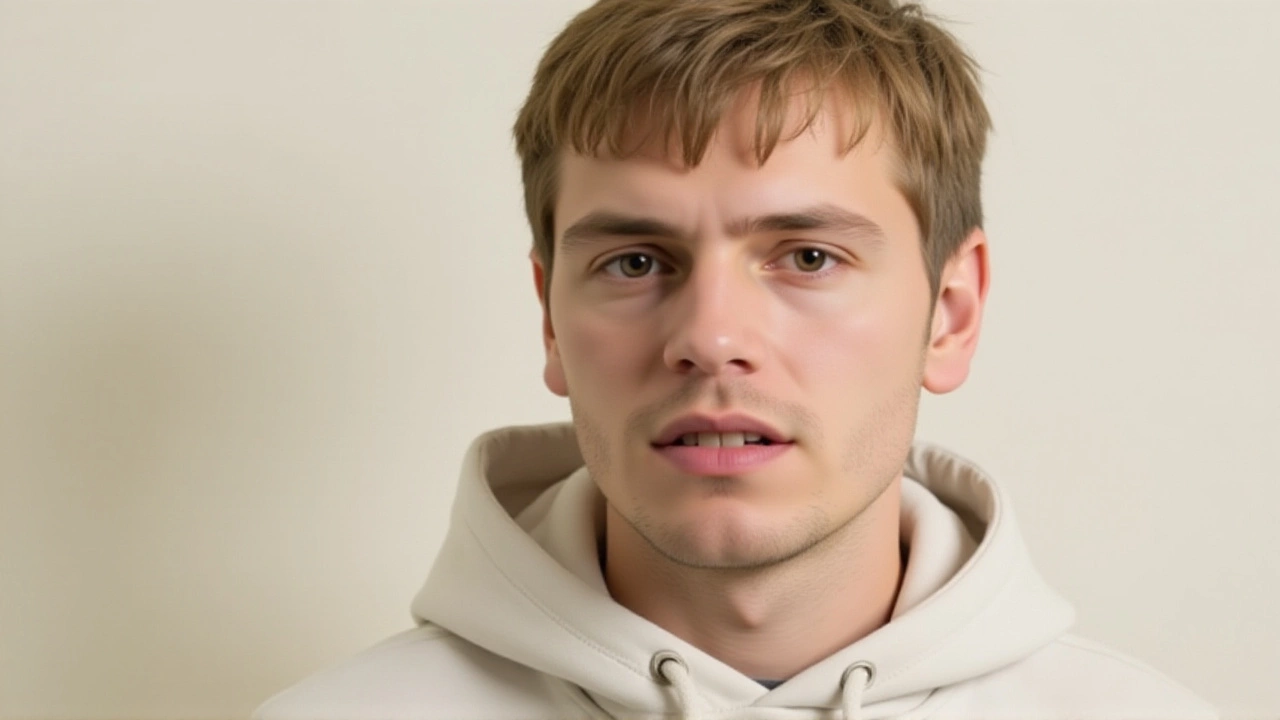
What This Means for Aberdeen
The financial windfall? Estimated at £1.8 million from the Scottish FA’s £2.4 million prize pool — not counting gate receipts, merch, and broadcast rights. But the real prize? European football. Aberdeen will enter the 2025-26 UEFA Europa League qualifying rounds on 10 July 2025. Their first European campaign since 2018. For a club that’s seen its fanbase shrink and its budget squeezed, this is a lifeline.And for Dabbagh? He’s no longer just a striker. He’s a symbol. A quiet man from Hebron, West Bank, who turned a football pitch in Scotland into a stage for hope.
Frequently Asked Questions
How did Hearts end up with only nine players in a Scottish Cup semi-final?
Hearts were reduced to nine men after two red cards: Craig Halkett received a second yellow in the 65th minute, and Cammy Devlin was shown a straight red in the 78th minute for violent conduct. This marked the first time since 2006 that a team played with fewer than 10 players in a Scottish Cup semi-final, highlighting the extreme pressure and intensity of the match under Scottish FA rules allowing five substitutions in normal time and a sixth in extra time.
Why is Oday Dabbagh’s goal considered historically significant?
Dabbagh became the first Palestinian player to win the Scottish Cup after scoring the decisive goal in the final against Celtic. His celebration, dedicated to Palestine amid ongoing conflict, drew global attention. He is also one of the few active Palestinian internationals in top-tier European football, making his achievement a rare milestone for both his national identity and the sport’s diversity.
What impact does this Scottish Cup win have on Aberdeen’s future?
The victory guarantees Aberdeen entry into the 2025-26 UEFA Europa League qualifying rounds starting 10 July 2025, offering vital exposure and revenue. It also ends a 35-year wait for a major trophy since their 1989-90 Cup win, revitalizing fan engagement and commercial interest. With a strong squad and manager Jimmy Thelin’s tactical discipline, Aberdeen could challenge for domestic dominance again in the coming seasons.
How does this final compare to Aberdeen’s previous Cup victories?
Aberdeen’s 1989-90 win, under Alex Ferguson, remains their most iconic — a 2-1 victory over Real Madrid in the Cup Winners’ Cup final was the highlight. This 2025 triumph, while less glamorous on the European stage, carries emotional weight as their first major trophy since the 2013-14 League Cup. With seven total Scottish Cup wins, they now trail only Celtic and Rangers, making this a vital step toward reestablishing their place among Scotland’s elite.
What role did Craig Gordon play in Hearts’ near-upset?
Despite being outnumbered, Hearts’ veteran goalkeeper Craig Gordon made 12 saves — the most by any goalkeeper in a Scottish Cup semi-final since 2008. His leadership and composure kept Hearts alive, including a stunning stoppage-time denial of a close-range header from Lewis Ferguson. Without him, the scoreline could have been far more lopsided, underscoring how individual brilliance can temporarily defy overwhelming odds.
What’s next for Oday Dabbagh after this breakthrough?
Dabbagh’s performance has drawn interest from clubs in the Premier League and Bundesliga, with scouts from clubs like Brighton and Leverkusen reportedly in attendance. He’s also being considered for a leadership role in the Palestinian national team as they prepare for 2026 World Cup qualifiers. His contract with Aberdeen runs until 2026, but his market value has likely doubled since April — and his legacy, already cemented, is only beginning.
